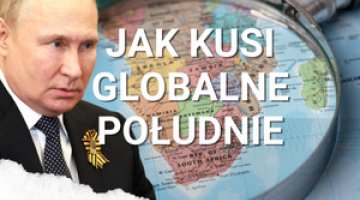Controlled opening-up of Russia’s energy sector to foreign investors
On 2 March, the French energy company Total received permission to take over almost 13% of Novatek, the largest Russian gas producer which is independent of Gazprom. This is another transaction allowing a foreign company onto the Russian energy sector. In January, BP signed an agreement to take over 9.5% of shares in the Russian state-owned oil group Rosneft. In addition, in the coming weeks, the Indian company ONGC is to acquire 25% of shares in the Russian private oil group Bashneft. These transactions mark the Russian government’s return to the strategy (launched in 2006, but suspended in connection with the global economic crisis) of a controlled opening-up of the Russian energy sector to foreign investors. The objectives of this strategy are twofold: to use foreign capital and technology to increase extraction in Russia, and to strengthen Russia’s presence on foreign markets by exchanging assets with businesses outside Russia.
Investments in the Russian energy sector
The memorandum signed by Total and Novatek states that the French company will pay US$4 billion for 12.8% of the shares in the Russian company by the end of March, and that this package may be increased by a further 7.4%. In addition, by the end of July, Total is to take a 20% stake in the Yamal LNG project (the exploitation of gas deposits estimated at almost 1 trillion m³, and the construction of gas condensers) which Novatek is developing.
Meanwhile, Rosneft’s agreement with BP is based on exchanging 9.5% of the Russian group’s shares for 5% of the British group’s, and creating a joint venture (with the minority participation of BP) whose task will be the exploitation of Rosneft-owned deposits in the Arctic. The agreement also provides for joint projects to be carried out in third countries.
In accordance with assurances from Russian Prime Minister Vladimir Putin, the planned extraction projects involving Total and BP will take place under a preferential tax regime.
The Russian companies’ agreements with BP and Total are similar to those concluded in the Russian energy sector in the period from 2006 to 2008, when the Italian energy companies ENI and ENEL and Germany’s BASF bought shares in Russian gas deposits, and several Western companies invested in the Russian electricity and petroleum sectors during their partial privatisation.
The ‘rules of the game’ in the Russian energy sector
Due to the strategic nature of the energy sector for Russia, foreign investors’ access to it is strictly limited, and requires political consent at the highest level. Foreign capital can only hope for minority holdings of shares in Russian companies, without the right to export raw materials from Russia independently, and with only limited opportunities to influence key decisions in the projects. Furthermore, the potential investors and projects are selected arbitrarily by the Russian government.
The greatest opportunities to gain access to Russian deposits are open to those businesses which have technology and experience (including what is necessary to exploit the Arctic deposits and condense the gas), and which can offer Russian investors attractive foreign assets in exchange (especially shares in companies which could ensure direct access to consumers in Europe). In 2009, Total had already purchased 49% of shares in a small gas deposit in Western Siberia from Novatek, while at the same time selling 45% of its shares in a Dutch refinery to the Russian oil company Lukoil.
The highest representatives of the Russian government are involved in the Russian energy transactions with foreign investors. The Novatek/Total agreement was signed at the official residence of Prime Minister Putin, and his full approval was also obtained for the agreement between BP and Rosneft (which is controlled by the Deputy Prime Minister Igor Sechin). As a consequence, Putin and Sechin are the guarantors for the conditions of the agreement to be met.
In turn, efforts by Chinese energy companies to gain access to important Russian energy resources have ended in failure, and the presence of many Western investors has been restricted to projects that are particularly attractive for Russian companies. For example, in 2010 the Russian authorities expelled BP from the Kovykta gas project in Siberia, and in 2006, Shell and two Japanese companies were forced to give Gazprom a majority package of shares in the Sakhalin-2 gas-petroleum project.
The Russian strategy’s aims towards foreign investors
The policy of the controlled admission of foreign investors onto the Russian energy sector is a carefully considered strategy. Its main objectives include:
– reversing the negative trends apparent in the Russian energy sector, namely the fall in extraction of raw materials (for example, production of crude oil is projected to fall by 20% over the next 10 years). The extraction of poorly accessible and costly new Russian deposits requires technologies and foreign capital.
– closer cooperation with foreign partners, linked to the need for Russian businesses to expand beyond the role of raw materials suppliers. This is why exchanging assets and gaining access to end-users is so important for them. The Russian government also hopes that thanks to the special conditions for cooperation guaranteed by Russian officials, the Western companies will become ‘advocates’ of Russian interests in their respective countries.
– maintaining and increasing the presence of Russian raw materials on key markets in the face of new developments on the global market. In the case of gas, Russia has a problem with the Russian Federation’s dependence on the European market, where competition is growing. Thanks to the recent transaction with Total, which has enormous experience on the LNG market, Novatek’s plans now include diversifying its gas export lines. At the same time, by starting to exploit new deposits, Russia intends to take advantage of the optimistic forecasts for global fossil fuel use (an increase of up to 20% in the next ten years), while the world's resources shrink.
Conclusions and forecasts
The new investments in the Russian raw materials sector are not the result of an improvement in the investment climate (although some positive changes have been observed, such as limiting the number of strategic enterprises, which allows them to be privatised). The state-controlled Russian economy still has serious problems with corruption and bureaucracy; property rights are regularly violated; and the courts are dependent on the executive branch of government. Investors, especially small and medium-sized enterprises, approach Russia with some suspicion. In 2010, foreign direct investments (FDI) were smaller (by around 13%, totalling US$13 billion) than during the crisis of 2009. However, the barriers to the Russian market have not deterred the large international oil companies. The potential for high profits means that they are ready to invest in Russia, despite their bad experiences on this market (such as that of BP). The investors are hoping that the patronage of the highest political authorities will ensure the security of their projects in Russia.
At the same time, Russia is seeking to take advantage of the current favourable world market conditions. Political instability in the oil-producing countries of North Africa and the Middle East has called their credibility as exporters into question, and has led to an increase in prices. Against this background, Russia appears to be a stable and predictable partner.
The new transactions announced – Bashneft and ONGC, Novatek’s sales of a further 29% of the shares in the Yamal LNG project – as well as the government’s privatisation plan for the next five years (such as the further privatisation of Rosneft) indicates that the strategy of controlled opening-up to foreign investors will be continued.
Iwona Wiśniewska, with additional research by Ewa Paszyc and Wojciech Konończuk





